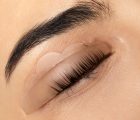
24 lbs. – this is how much sebum our skin produces annually. Many people consider it as their biggest enemy but, as it turns out, it offers vital protection. What’s sebum and do we really need it? What influences the amount of sebum secreted and what’s the consequence of excessive sebum production? And finally: How to get rid of excessive sebum?
What’s sebum?
Sebum is a substance secreted by oily glands that are located in the entire skin surface, excluding palms and soles. One square centimeter of skin features approximately from a few to several hundred milligrams of sebum that is produced for 24 hours. Sebum constitutes of the following substances: monoglycerides, diglycerides, triglycerides, waxes, free fatty acids, squalene and cholesterol. Depending on various factors, some body areas feature more sebaceous glands, which is why these skin areas secrete more sebum.
Is sebum needed?
Sebum is a constituent of hydro-lipid coat of skin which serves a protective function. If deprived of sebum, skin would be exposed to adverse action of all external factors, which are bacteria, viruses, fungi, ultraviolet radiation, changing weather conditions, chemical compounds in cosmetics and mechanical factors (including rubbing and scratching). Without sebum skin becomes matte and wrinkled, it loses elasticity faster and has problems with absorbing nourishing substances delivered with beauty products.
What influences the amount of sebum produced?
The quantity of secreted sebum is determined by the following factors:
- Estrogen and progesterone – hormones that slow down sebaceous glands
- Testosterone, androstendiol, dehydroepiandrosterone and 4-androstenedion – hormones that intensify work of sebaceous glands
- Age. The amount of sebum produced is the highest right after the birth and reduces within 6 months. Then, it increases again around puberty period and remains high until reaching maturity. It slightly drops down around 25 to decline around 40. In women secretion of sebum is stopped completely during their menopause period, which encourages dry skin.
- Shortages of vitamins A, B₂ and B₆
- Mechanical factors. Touching, pressing and rubbing of epidermis stimulate glands to work, which increases sebum production.
- Weather and temperature. Sebum production is intensified in dry climate and high temperature.
- Time of day. The least sebum is produced at night and in the early morning. This situation changes around 10:00 AM.
Excessive sebum production – Effects
Oily skin
This problem mainly affects T-zone and back. It affects people which sebum layer is thicker than normally because sebaceous glands work faster. This might be caused by improper and insufficient skin care, including its dehydration or frequent rubbing; also it might be genetic. In such case you must take care of proper skin cleansing and moisturising. It isn’t a good idea to use preparations that leave skin dehydrated. Indeed, such products might improve the state of skin, but just temporary – after a while skin starts shining again due to strong response of sebaceous glands.
Greasy scalp and hair
In order to solve this problem, scalp must be moisturized and cleaned regularly. To do this, it’s suggested reaching for a herbal shampoo, scalp scrub or deeply cleansing mask and light moisturising oils.
Acne
This ailment is the aftermath of disturbed hormonal balance in organism, therefore targeting sebaceous glands themselves won’t do much. Acne can be cured only due to medications. Skin pores cleansing and taking under control sebum production might be used supportively.
How to eliminate the excess of sebum?
Although sebum is necessary because it shields skin against aggressive external factors, there are methods enabling you to limit its secretion. Firstly, it’s advised to apply mattifying cream of light consistency (daily) and mattifying makeup base (before putting on a foundation). Secondly, when needed you can reach for oil blotting sheets which degrease skin without spoiling makeup. They can be replaced with either a cotton pad or a tissue.





Leave a Reply